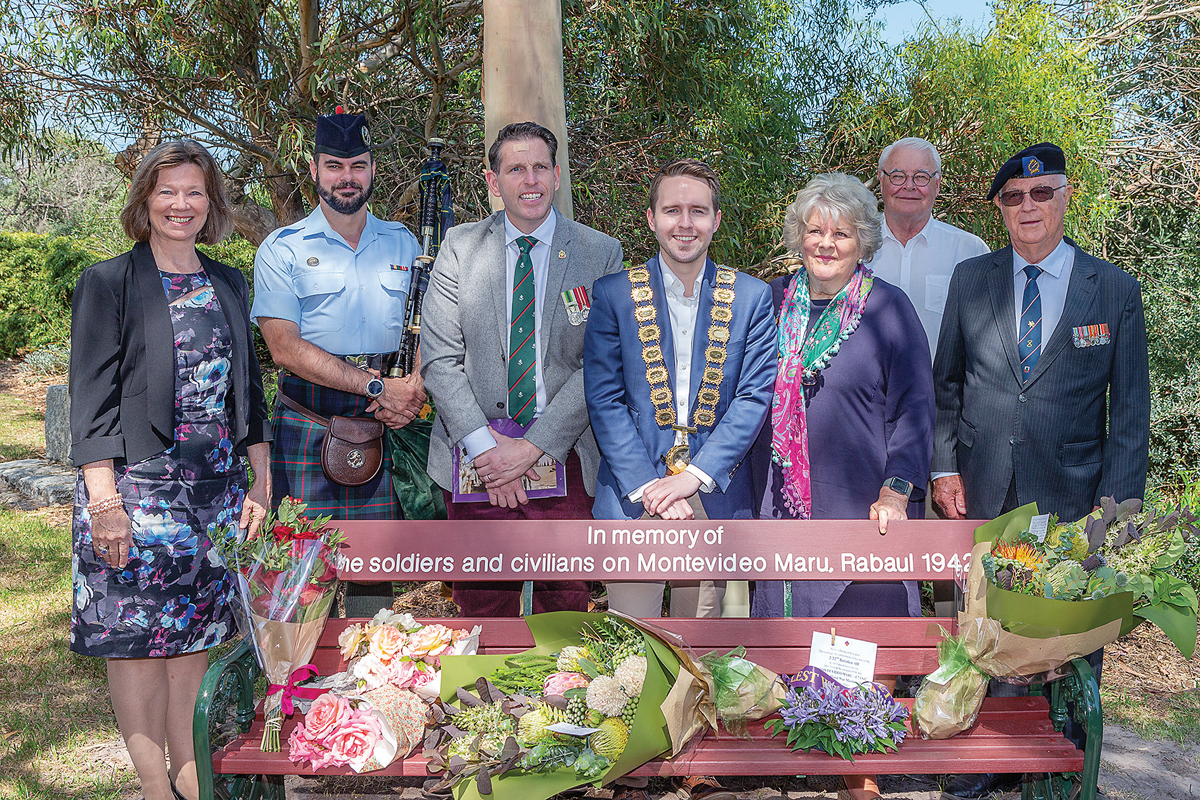THE incredibly moving story of the sinking of the Montevideo Maru in the Pacific – Australia’s biggest single maritime loss of life – was thrust into the spotlight again recently with the unveiling of a memorial seat in Mornington and a story board dedicated to those who died.
The allied torpedoing of the Japanese prisoner-of-war ship on 1 July 1942 was an immeasurable tragedy, but one that somehow largely got lost in the horrors of the war. Unbelievably, the event is not something many Australians today have much knowledge of.
But that will all change if the incident becomes part of the film history of WW2, immortalised and documented on the big screen.
In 2005 Gillian Nikakis, the Mornington daughter of Bill Spensley, one of the 1050 civilians on board believed to have gone down with the ship, wrote a book about the sinking, He’s Not Coming Home, and is hoping the story can be made into a movie.
Nikakis, a retired nurse-counsellor who lobbied for the inclusion of the seat at Memorial Park, said telling the stories of war provided a necessary reminder to everyone about the everlasting impacts of conflict, particularly on families left behind.
“I’d love to see the story of the sinking of the Montevideo Maru told in film, because it had such a profound impact on so many people, and there are many stories of families and communities who suffered the anguish of losing someone or not knowing,” she said.
“It is an incredibly important event in Australia’s wartime years, but also covers a sad and often colourful period of history and life that has so many elements to it.”
Nikakis was born in Rabaul in the East New Britain province of Papua New Guinea, on the island of New Britain, but was evacuated to Melbourne as a toddler with her mother and brother shortly before the Japanese invasion in 1942. She never saw her father again, but has spent years searching for people who may have known him, and documenting facts about his life, the family’s time in the then Mandated Territory of New Guinea and life after the war.
As she gained more information and tracked her father’s trail, she discovered there was much more to the story of the sinking of the Montevideo Maru, the fate of the prisoners of war onboard, and the actions of the Australian government at the time.
But her book is more than just a war story. Nikakis weaves the story around engaging tales of life in Rabaul and in Melbourne, and of her much-loved mother Tick, who she described as a vibrant, strong and “fun” woman who lived life to the full, but who never got over the loss of her beloved Bill.
Life in Rabaul was “self-indulgent” and privileged for expats in the late 1930s, and Nikakis’s parents lived quite the social high life, along with the 1000s of other caucasians (mainly Australian and German) in the provinces. Drawing on years of research, Nikakis provides an insight into life for Australians and other ex-pats in the colonies, bringing the colours, smells and characters of these places to life on the page.
Her book covers a lot of ground, describing the romance between her mother and father, who worked for a major import company, his capture by the Japanese after apparently being given up by locals, the excruciating uncertainty over who died on the ship, life during and after Rabaul and the enduring friendships and connections she made during her years of research.
“I am hoping there is a filmmaker out there who can see a film in this story, and takes it on,” she said.



